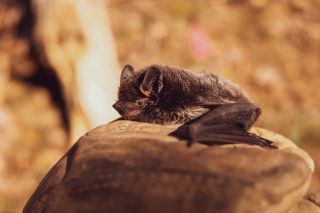Philosophy
Can We Study Animal Consciousness?
How evolution can help us to understand what goes on in animal minds
Posted June 5, 2023 Reviewed by Kaja Perina
Key points
- Human consciousness represents merely one instance of this broader phenomenon.
- An evolutionary perspective can help us to study the subjective experience of other animals.

Can we ever truly understand the experiences of animals? Many philosophers and scientists harbor skepticism, often asserting that we can never truly comprehend what goes on in an animal’s mind.
For the past three years, I have immersed myself in the philosophical question of what it's like to be another animal. Throughout this period, I've authored several academic articles, book chapters, and blog posts for Psychology Today on this very topic. However, these efforts have largely been scattered. This month, all my writings will finally coalesce into my first monograph. Just a week ago, Routledge made my forthcoming book, "A Philosophy for the Science of Animal Consciousness," available for preorder.
Often, scientists and philosophers treat consciousness as if it's a singular 'thing'—a majestic, all-or-nothing property exclusive to humans. But this is a mistake.
Naturally, the idea that such a multifaceted phenomenon—tied to a plethora of different experiences—suddenly came into existence begs an explanation that is impossible to provide. Unsurprisingly, under these circumstances, the philosophical mind-body problem, i.e., how matter gives rise to minds, seems unsolvable.
The answer, of course, is to refute the idea that all the wonderful attributes we associate with consciousness need to have manifested simultaneously. Human consciousness represents merely one instance of this broader phenomenon, which is present across a vast range of the animal branch of life. Thus, we shouldn't solely rely on the human case when constructing theories of consciousness.
Instead, we need to disentangle the various dimensions of consciousness to understand how human-like consciousness gradually evolved. This is why I refer to it as a bottom-up approach: we start by considering the most rudimentary forms of consciousness—so minimal that it might seem absurd to even use the term consciousness—and proceed to ask how such a capacity could have evolved to make sense of its very beginnings. Some refer to this method as reverse-engineering: we deconstruct consciousness into its various components to comprehend how it could have evolved.
Of course, this is easier said than done, which is why it took three years to write this book. However, the last decade has seen the gradual emergence of a new interdisciplinary field—animal consciousness research—no longer fettered by behaviourism.
The renowned discoverer of bat echolocation, Donald Griffin, once posited that the study of animal minds would be the "final, crowning chapter of the Darwinian revolution," a sentiment I adopted as the motto for my book. While consciousness may be the hardest problem in biology, that doesn't mean we can't take incremental steps towards understanding it better. In doing so, we will come to comprehend why evolved beings possess subjective experience at all and the role such a capacity plays in their lives.
My book is written in an intentionally accessible style, not only for fellow philosophers and scientists but also for the general public interested in how science can help us to understand what it is like to be a raven, a dog, or a dolphin. This question is not only of importance for the curious among us, but it is of central importance for animal ethics and welfare legislation. Only by trying to understand the subjective experience of other animals will we be able to understand what makes the lives of animals go well or poorly. And for this, an evolutionary perspective is the greatest tool we have. By asking how consciousness could help (or hinder) animals to solve the problems they are faced with in the environments they have evolved in, we will be put in a position to make reasonable predictions that can in turn be tested.
References
Veit, W. (forthcoming June 2023). A Philosophy for the Science of Animal Consciousness. New York: Routledge. https://www.routledge.com/A-Philosophy-for-the-Science-of-Animal-Consciousness/Veit/p/book/9781032343617


